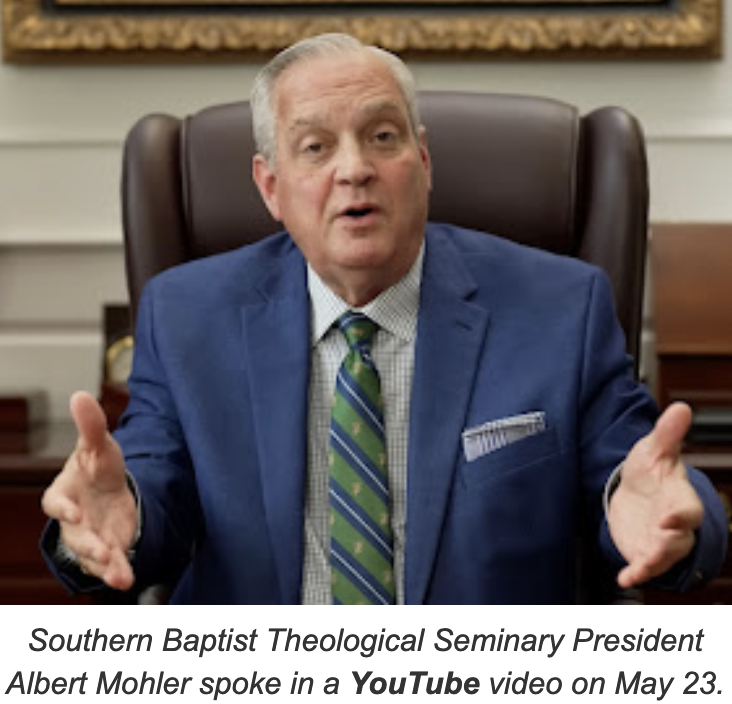Southern Baptist Convention opposes in vitro fertilization, passing resolution offered by head of denomination’s Louisville seminary

Kentucky Health News
The Southern Baptist Convention voted Wednesday to oppose the use of in vitro fertilization, in which many human embryos are created outside the body but only one or a few are implanted in the uterus.
The resolution, adopted at the denomination’s annual meeting in Indianapolis, was offered by R. Albert Mohler Jr., president of the Southern Baptist Theological Seminary, and Andrew T. Walker, an associate professor of Christian ethics and public theology at the Louisville school.
The two “acknowledged that the issue is divisive even among strongly anti-abortion Christians, and that Republicans have leaped to preserve access to fertility treatments,” reports Ruth Graham of The New York Times. She quoted from an interview in which Mohler said: “I want to do more than nudge Republicans who are against us on this. I want to call them out for their error and inconsistency.” He said IVF as commonly practiced is “as immoral as anything we can imagine if we state the proposition clearly, but a lot of evangelicals don’t want to state the proposition clearly.”
Mohler told Politico that he is “very frustrated” with Republicans who favor legislation protecting IVF: “A lot of them are responding out of political expediency, not out of moral principle. You can’t say on one hand life begins at fertilization and then on the other hand say but now we’re not so concerned about that in this other arena.”
After the Alabama Supreme Court outlawed IVF this year, Republican politicians there and in other GOP-controlled states scrambled to protect the process. A bill to protect IVF in Kentucky got no hearing, and state law on the topic is unclear. Action by Congress is unlikely because 60 votes would be needed to pass such legislation through the Senate.
The Southern Baptist Convention is Kentucky’s largest religious denomination. As of 2021, 1.2 percent of births in Kentucky involved the use of assisted reproductive technologies, mainly IVF; the U.S. rate was 2.3%.
 The resolution is not binding on any church or member. It asks Southern Baptists “to reaffirm the unconditional value and right to life of every human being, including those in an embryonic stage, and to only utilize reproductive technologies consistent with that affirmation, especially in the number of embryos generated in the IVF process.”
The resolution is not binding on any church or member. It asks Southern Baptists “to reaffirm the unconditional value and right to life of every human being, including those in an embryonic stage, and to only utilize reproductive technologies consistent with that affirmation, especially in the number of embryos generated in the IVF process.”
The resolution also urges Southern Baptists to “advocate for the government to restrain” actions inconsistent with the dignity of “every human being, which necessarily includes frozen embryonic human beings.” In other words, unusued embryos should be frozen, not destroyed.
“Although the process . . . often results in the destruction of unused embryos, many Southern Baptists see that as fundamentally different from abortion because the goal of fertility treatments is to create new life,” Graham reports. Convention messengers, or delegates, “heard several emotional testimonies, some from Baptists who hoped to soften the language of the resolution.”
Megan Messerly of Politico reports, “As evangelicals become more educated on the issue, they are largely falling into two camps: those who believe that IVF can be practiced ethically if no embryos are destroyed, and those who like Mohler and Walker believe IVF is inherently unethical because it separates conception from the act of sex between husband and wife. Walker, acknowledging the former view, noted the resolution was ‘drafted to pass.’ A last-minute amendment sought to make clear that IVF is permissible in some circumstances, but failed.”
Vote counts were not announced, but a convention spokesman told The Wall Street Journal that the resolution passed overwhelmingly.
At a Monday luncheon “hosted by a new conservative Christian advocacy group with Southern Baptist ties, Mohler compared the nascent evangelical conversation around in vitro fertilization to the years after the Roe v. Wade decision, when Catholics led the anti-abortion movement and evangelicals were less attuned to the issue,” Graham reports, quoting him: “We had to learn after 1973 as evangelicals. We had to learn how to get this issue right.”
The Southern Baptist Convention did not declare its opposition to abortion until several years after the 1973 Roe v. Wade decision of the U.S. Supreme Court, which overturned itself in 2022 in a case styled Dobbs v. Jackson Women’s Health Organization.
Kentucky Health News is an independent news service of the Institute for Rural Journalism and Community Issues, based in the School of Journalism and Media at the University of Kentucky, with support from the Foundation for a Healthy Kentucky.
Donate to Kentucky Health News here.